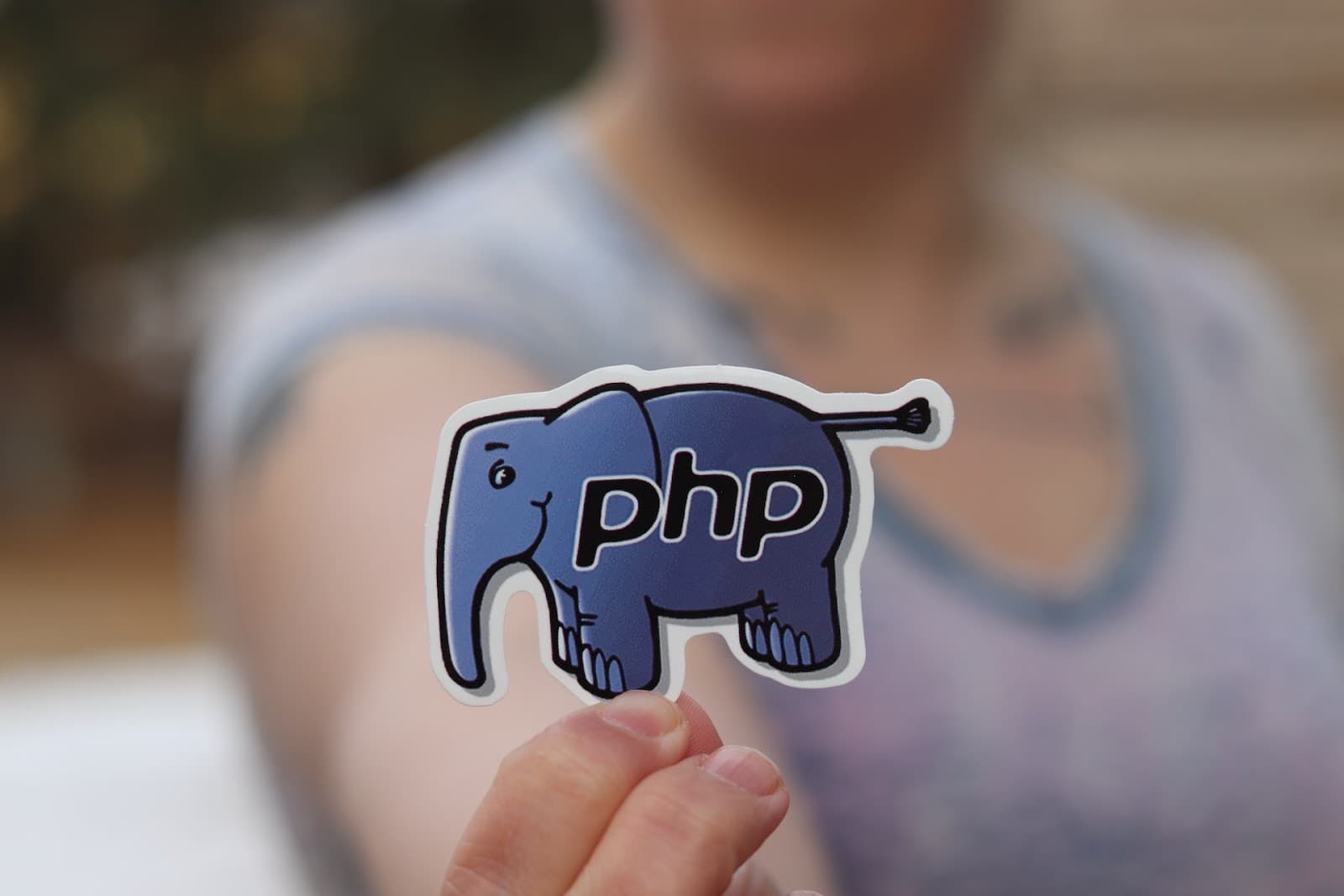As the digital landscape continues to evolve at an unprecedented pace, the demand for skilled web developers is higher than ever. But with a plethora of programming languages to choose from, it can be overwhelming for aspiring web developers to decide where to start.
One language that often sparks debate is PHP. Despite its age, PHP remains a mainstay in web development, powering major sites like Facebook and WordPress. Yet, is learning PHP necessary to become a web developer?
In this blog post, we’ll delve into the role of PHP in today’s web development industry, its pros and cons, and if it’s an essential skill for modern web developers.
Whether you’re a budding programmer or a seasoned coder considering adding PHP to your toolkit, this post will provide valuable insights to help make your decision.
Understanding the Web Development Landscape
Web development is a dynamic and ever-evolving field. It is the backbone of our daily digital interactions, from browsing social media sites to conducting online banking transactions. At its core, web development involves creating and maintaining websites or web applications. This process includes web design, web content development, client-side/server-side scripting, and network security configuration among other tasks.
The landscape of web development has undergone significant transformations since its inception. Early on, simple HTML was enough to create a basic webpage. However, as the Internet evolved, so did the complexity and capabilities of websites. Today, web development is a multifaceted discipline that requires an understanding of several programming languages, databases, and design principles.
The role of programming languages in web development cannot be overstated. These languages are the building blocks used to create websites and web applications. Each programming language has its strengths and is suited to particular aspects of development.
For instance, HTML (HyperText Markup Language) is the standard markup language used to create the structure of web pages. CSS (Cascading Style Sheets) is used for styling and layout of web pages. JavaScript, on the other hand, allows for interactivity and is essential for creating dynamic content.
On the server side, there are even more languages to choose from. PHP, for example, is a popular server-side scripting language that is especially powerful in data manipulation and is widely used for developing dynamic and data-driven websites and applications.
However, in recent years, other languages such as Python and JavaScript (Node.js) have gained popularity in server-side web development due to their ease of use and versatility.
The Versatility of PHP
PHP’s Role in Web Development
PHP, short for Hypertext Preprocessor, is not just another programming language. It’s a cornerstone of modern web development and has been so for over 25 years. As a server-side scripting language, PHP plays a pivotal role in the creation and maintenance of dynamic websites and web applications.
Why is PHP such a key player in web development? It’s primarily because it integrates seamlessly with HTML, the basic building block of web pages. This means that you can embed PHP code directly into your HTML, making it easier to create dynamic content.
Moreover, PHP is platform-independent and compatible with all major operating systems like Linux, Windows, Mac OS, etc. This broad compatibility makes PHP a flexible and cost-effective solution for server-side scripting.
Applications of PHP
When we talk about the applications of PHP, they are as diverse as they are extensive. One of the most common uses of PHP is in creating dynamic web pages. These are web pages that change in response to different users or user input. Examples of dynamic websites built using PHP include Facebook and WordPress.
Another significant application of PHP is in the creation of robust web applications. For instance, PHP is used extensively in e-commerce platforms like Magento and WooCommerce. These platforms use PHP to handle everything from product display to shopping cart functionality and payment processing.
Furthermore, PHP is also used in developing Content Management Systems (CMS). WordPress, the world’s most popular CMS, is built on PHP. This allows users to manage and modify their website content without needing extensive programming knowledge.
Examining the Need for PHP in Web Development
As we delve into the realm of web development, one question often arises: is learning PHP necessary to become a web developer? To answer this question, we will explore the market demand and job opportunities for PHP developers, and conduct a comparative analysis of web development stacks with and without PHP.
Market Demand and Job Opportunities
According to data from Zippia, the projected growth rate for PHP developers is 13% from 2018-2028, indicating a promising job outlook (source: https://www.zippia.com/php-developer-jobs/trends/). Many companies find PHP development relevant and future-proof, contributing to its sustained market demand.
Furthermore, PHP developers can expect competitive salaries. By 2026, the U.S. Board of Labor Statistics predicts a 16% increase in web development-related positions, including roles for PHP developers (source: https://www.bls.gov/ooh/computer-and-information-technology/web-developers.htm). This clearly indicates a thriving job market for PHP developers and underlines the importance of PHP in web development.
Comparative Analysis of Web Development Stacks
Web development stacks often include a combination of languages and tools tailored to a project’s specific needs. PHP holds a significant place in many of these stacks due to its advantages.
PHP, as part of the LAMP (Linux, Apache, MySQL, PHP) stack, provides a robust and scalable solution for web development. Its compatibility with various databases and ease of integration with HTML make it a versatile choice.
On the other hand, JavaScript-based stacks like MEAN (MongoDB, Express.js, AngularJS, Node.js) or MERN (MongoDB, Express.js, React, Node.js) offer a full JavaScript environment that can be advantageous for real-time applications. However, these stacks require a deeper understanding of JavaScript, which might be complex for beginners.
In contrast, PHP is easier to start with and widely used for server-side scripting. The large community and abundance of resources for learning and troubleshooting make it a good choice for both beginners and seasoned developers.
Alternatives to PHP in Web Development
In the world of web development, PHP has long been a mainstay. However, it’s not the only tool in the toolbox. There are numerous alternatives that offer different strengths and weaknesses depending on what you’re trying to achieve. Let’s explore some of these alternatives and see how they compare to PHP.
- Python: Known for its simplicity and readability, Python is an excellent language for beginners. It’s used in a wide range of applications, from web development to data analysis, machine learning, and more. Django and Flask are two popular web development frameworks for Python.
- JavaScript: Originally designed for making web pages dynamic and interactive, JavaScript has expanded far beyond its original purpose. With the advent of Node.js, JavaScript can now be used for server-side scripting as well, making it possible to use the same language for both front-end and back-end development.
- Ruby: Like Python, Ruby is known for its simplicity and readability. It’s also known for Rails, a popular web development framework that emphasizes convention over configuration, making it easier to get a basic website up and running.
Comparing PHP with Alternatives
When compared with these alternatives, PHP offers some unique advantages as well as some potential drawbacks.
- Ease of Learning: PHP, being a language specifically designed for the web, can be easier to pick up for someone new to programming. However, Python is often lauded as the most beginner-friendly programming language due to its clean, easy-to-read syntax.
- Versatility: JavaScript is arguably the most versatile of the bunch, given its use in both client and server-side development. PHP, while robust and powerful, is primarily used for server-side scripting.
- Performance: In terms of raw performance, each of these languages can be highly performant, but this often depends more on the skill of the developer and the complexity of the application than on the language itself. That said, JavaScript (Node.js), being event-driven, can handle concurrent requests more efficiently than PHP.
- Community Support: All four languages have large, active communities. PHP has been around since 1995, so it has a vast number of libraries and frameworks available. Python, JavaScript, and Ruby also have extensive communities and resources.
Addressing Common Misconceptions
There’s a lot of chatter about PHP in the programming world, and not all of it is accurate. Let’s address some common misconceptions that might be keeping you from learning this powerful language.
Myth 1: PHP is obsolete. Fact: This is far from the truth. According to W3Techs, as of October 2023, PHP is used by 78.9% of all the websites whose server-side programming language we know (source: https://w3techs.com/technologies/details/pl-php). This makes it the most popular server-side language, indicating that it’s anything but obsolete.
Myth 2: You can’t build modern web applications with PHP. Fact: Some of the largest and most advanced platforms on the web, like Facebook, WordPress, and Wikipedia, are built with PHP. These platforms serve millions of users daily, proving that PHP is capable of handling modern web applications.
Myth 3: PHP is slow. Fact: While it’s true that raw PHP code may not be as fast as some other languages, with tools like the HipHop Virtual Machine (HHVM) introduced by Facebook, PHP execution times can be significantly improved. Furthermore, the speed of a website is determined by many factors, not just the programming language.
Future Prospects and Recommendations

PHP in Modern Web Development
Despite the emergence of various other programming languages, PHP continues to be a significant player in the realm of web development thanks to its flexibility, cost-effectiveness, and robust security features.
The adaptability of PHP is noteworthy. It can cater to a range of web development projects, from simple scripts to complex applications, managing tasks like data processing and form validation with ease. In the era of dynamic and interactive websites, PHP’s ability to develop such platforms makes it an invaluable tool.
Moreover, PHP isn’t static; it’s evolving alongside modern technologies. PHP frameworks, for instance, have become powerful tools in web development, solving many problems and saving developers considerable effort. This evolution showcases PHP’s capacity to embrace change and integrate with emerging technologies, ensuring its continued relevance.
Recommendations for Aspiring Web Developers
For those aspiring to become web developers, learning PHP is highly recommended. Given its widespread usage and versatility, proficiency in PHP provides a competitive edge in the job market. Additionally, understanding PHP can serve as a solid foundation for learning other programming languages.
However, it’s crucial to remember that web development is not just about mastering a single language. A successful web developer needs to understand multiple languages and how they interact. Therefore, while PHP should be part of your skillset, don’t neglect other languages like JavaScript, HTML, CSS, and more.
Lastly, keep abreast of the latest trends and technologies in web development. The field is constantly evolving, and staying updated will help you adapt and innovate. Remember, PHP is continually changing too, so regular upskilling is necessary to leverage its full potential.
In conclusion, while PHP is not the only language necessary for becoming a web developer, it is undeniably a significant one. Its wide usage, versatility, and ongoing evolution make it a valuable asset in the toolbox of any aspiring web developer.
Final Words
PHP remains a key player in the landscape of web development due to its widespread usage, versatility, and adaptability to the evolving technologies. Despite misconceptions, PHP is not obsolete or incapable of building modern web applications — its role in powering major platforms and websites is a testament to this.
Learning PHP provides a competitive edge in the job market for aspiring developers, while also serving as a solid foundation for mastering other languages. However, web development encompasses more than one language, and gaining proficiency in others such as JavaScript, HTML, and CSS is equally crucial.
Staying up-to-date with the latest trends and regularly upskilling are important practices to fully exploit the potential of PHP and other languages in the dynamic field of web development.
